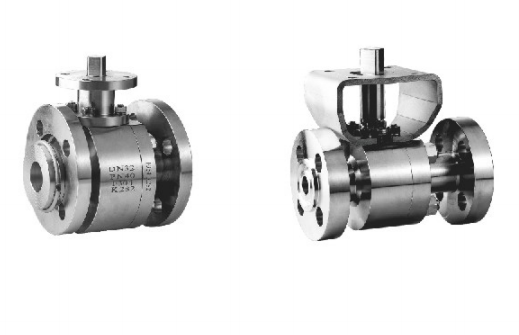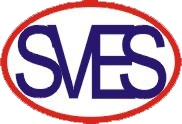
How to Choose the sutible Ball valve for your oil and gas industry operation
2023-10-09 18:08Mastering Oil & Gas Flow Control: Ball Valve Advantages, Recommendations, and Selection Guide
The oil and gas industry relies on precise flow control mechanisms to ensure the safe and efficient transportation of valuable resources. Among the various options available, ball valves have emerged as a critical component in this sector. In this guide, we will explore the advantages of ball valves, offer recommendations for their usage, and provide guidance on how to choose the right ball valve for your specific needs.
Advantages of Ball Valves
1. Durable and Reliable
Ball valves are known for their robust construction, making them ideal for the harsh environments often encountered in the oil and gas industry. Their durability ensures a long service life, reducing maintenance and replacement costs.
2. Excellent Flow Control
Ball valves provide precise control over flow rates, allowing operators to fine-tune the movement of fluids within pipelines. This capability is vital for maintaining the optimal flow of oil and gas in various operational scenarios.
3. Quick Shut-off
In emergency situations, a quick shut-off can be critical to prevent accidents and minimize damage. Ball valves excel in this regard, as they can be closed rapidly, providing an added layer of safety.
4. Minimal Leakage
The tight sealing of ball valves minimizes the risk of leakage, which is crucial when handling hazardous substances. This helps maintain environmental compliance and ensures worker safety.
5. Versatility
Ball valves can handle a wide range of temperatures and pressures, making them suitable for diverse applications within the oil and gas industry, from upstream to downstream operations.

Overview
Ball valve has the characteristics of low fluid resistance, smooth flow channel, quick opening and closing, easy automatic control, etc., so it has been more and more widely used. However, because the valve seat of the conventional ball valve is generally made of non-metallic materials such as polytetrafluoroethylene, limited by the sealing material of the valve seat, the conventional ball valve can not be used under high temperature conditions, nor can it be used for media containing solid particles, ash and other media, so the conventional ball valve is subject to certain restrictions in use. The 'hard seal ball valve is metal-to-metal seal, composed of different materials, so it effectively solves the high temperature, high pressure,containing particles and complex fluid media and harsh working conditions, so it is widely used in petroleum, chemical, electric power, metallurgy, light industry and other industries. The hard sealing ball valve technology produced by the company has reached the leading level in China.
Recommendations for Ball Valve Usage
1. Regular Maintenance
To maximize the lifespan and effectiveness of ball valves, regular maintenance is essential. Inspect valves for signs of wear and tear, and replace any damaged components promptly.
2. Proper Sizing
Ensure that the size and capacity of the ball valve match the demands of your specific application. Undersized valves may cause flow restrictions, while oversized ones can lead to inefficiencies.
3. Material Selection
Choose the material for your ball valve carefully, considering factors such as corrosion resistance and compatibility with the substances being transported.
4. Consider Actuation
Depending on your operational requirements, you may need to use manually operated ball valves or opt for automated versions. Automated ball valves offer remote control and monitoring capabilities, enhancing operational efficiency.
Metal hard sealed ball valve is suitable for all kinds of pipelines of Class150-Class2500,PN16-PN420,JIS10K~JIS20K, used to cut off or connect the medium in the pipeline, choose different materials, It can be applied to non-corrosive medium, weakly corrosive medium, nitric acid, acetic acid, oxidizing medium, urea and other media, especially suitable for harsh conditions including solid particle medium, slurry, pulverized coal, ash and so on. The metal hard seal ball valve is driven by manual, worm gear, pneumatic or electric. Metal hard sealed ball valve generally adopts flange connection, can also use butt welding connection, socket welding connection, thread connection and clamp connection.
How to Choose the Right Ball Valve
1. Identify Your ApplicationDetermine the specific requirements of your oil and gas application, including temperature, pressure, and the type of media being handled. This information will guide your valve selection.
2. Valve Type
Consider whether a full port or reduced port ball valve is more suitable for your needs. Full port valves allow for unobstructed flow, while reduced port valves are more compact and cost-effective.
3. Material Selection
Select materials that are compatible with the corrosive properties of the media. Common materials include stainless steel, carbon steel, and brass.
4. End Connections
Choose the appropriate end connections, such as flanged, threaded, or welded, based on your piping system's requirements.
5. Actuation Options
Decide if you need manual, electric, pneumatic, or hydraulic actuation for your ball valve. The choice depends on the level of control and automation needed.
In conclusion, ball valves are indispensable tools for controlling the flow of oil and gas in the industrial sector. Their durability, precision, and reliability make them an excellent choice for various applications. By following the recommendations and guidelines outlined in this guide, you can select the right ball valve for your specific needs, ensuring safety, efficiency, and longevity in your operations. Master the art of flow control with ball valves, and enhance the performance of your oil and gas processes.
